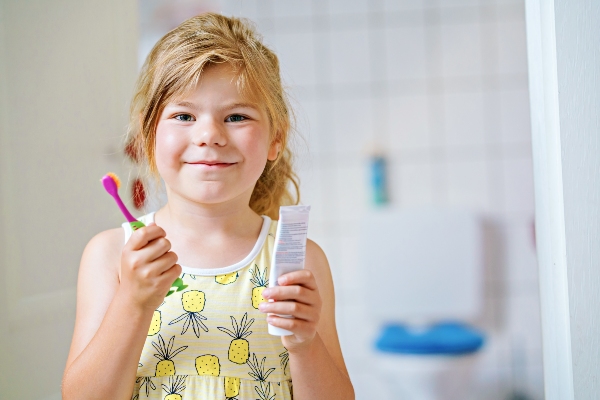What Foods to Avoid in Preventive Dental Care for Kids
 Eating the right foods is part of preventive dental care for kids. Children like to eat sweet and starchy foods. This affects the health of their teeth and gums. It will take some discipline to stay away from the wrong foods. If you want to support preventive dental care for kids, here are the details about the foods your child must avoid.
Eating the right foods is part of preventive dental care for kids. Children like to eat sweet and starchy foods. This affects the health of their teeth and gums. It will take some discipline to stay away from the wrong foods. If you want to support preventive dental care for kids, here are the details about the foods your child must avoid.
Cavities are a problem
Cavities are structural damage to the enamel and the tooth’s inner structures. Many factors contribute to this type of dental problem. Consuming starch and sugar can increase the population of bad bacteria in the mouth. The bacterial acids these organisms give off erode the enamel. This results in the formation of holes and pits. The superficial damage eventually becomes bigger and deeper, resulting in severe pain and even tooth loss.
Tiny cavities can go unnoticed, especially if these holes are at the gumline or between teeth. The cavities eventually worsen. When this happens, the holes become more visible. Teeth become more sensitive, painful, and discolored. Both primary and permanent teeth can develop cavities. Proper preventive dental care for kids can prevent this problem from worsening.
Diet for fighting cavities
Part of preventive dental care for kids is having a “dental” home. This involves having teeth-friendly foods available at all times. The shelves should not be lined with sugary or starchy foods at all. Below are some of the foods to avoid in preventive dental care for kids:
- Dark colas and sodas are not part of preventive dental care for kids. These drinks are sugary and acidic. The dark, sweet, and acidic liquids can go in between teeth.
- Chewy or gummy candies are sticky and sweet. Decay starts right away once sugar touches the enamel. These candies stay on teeth for a longer time. This allows plaque to stay longer as well. Sticky candies like these cement sugar onto the enamel.
- Chewing ice is not a good idea, even if the child wants to cool down. Ice is dense. Each bite can lead to fractures and cracks. Any damage of this kind to teeth can lead to bacterial infection.
- Chips and crackers may not be sweet, but these foods contain starch. The enzymes in the saliva break them down into simple sugars. The starchy remnants stay on teeth for longer periods as well. Eating these may not be part of preventive dental care for kids, but brushing can help remove the starch right away.
- Energy or sports drinks are against preventive dental care for kids. These drinks are not health supplements at all. Each bottle is full of acids and sugars. The enamel can erode right away, even if these drinks can replace lost electrolytes.
- Black tea can stain teeth. Although it is tea, it can still discolor teeth. White tea can be a better option for preventive dental care for kids.
- Popcorn is surely delicious. Children cannot seem to get enough of this snack, especially while watching TV. But this food is not part of preventive dental care for kids. Popcorn casings can get between teeth and can hurt the gumline.
Choosing the right foods is good for preventive dental care for kids
Eating is important to a child’s developing body. Snacking is good only when the foods are friendly to gums and teeth. Knowing what foods to avoid is important in preventive dental care for kids. Working with your dentist can motivate your child to choose healthier snacks and treats.
Request an appointment or call Grand Parkway Pediatric Dental at 832-579-0960 for an appointment in our Richmond office.
Recent Posts
Visiting a pediatric dentistry office with your child ensures his or her future relationship with oral hygiene and dentists, in general. Whenever your child suffers from oral injuries, consider making an appointment with your pediatric dentist to uncover any underlying problems. For instance, injuries to the tongue and teeth could indicate a deeper jaw or…
Fluoridated water is part of pediatric dentistry. It is a convenient and easy way to strengthen and protect teeth at an early age. Many areas have fluoridated water, which is a definite advantage. If you want to know why a dentist will likely recommend fluoridated water, here are the details.Studies show that almost all sources…
Nutrition is an important part of pediatric dentistry. Having balanced amounts of vitamins and minerals can strengthen and protect the teeth. Proper nutrients also fuel dental function. If you want to know how important nutrition is for your child’s oral health, here are the details from a pediatric dentistry professional.Children are still developing. They need…


